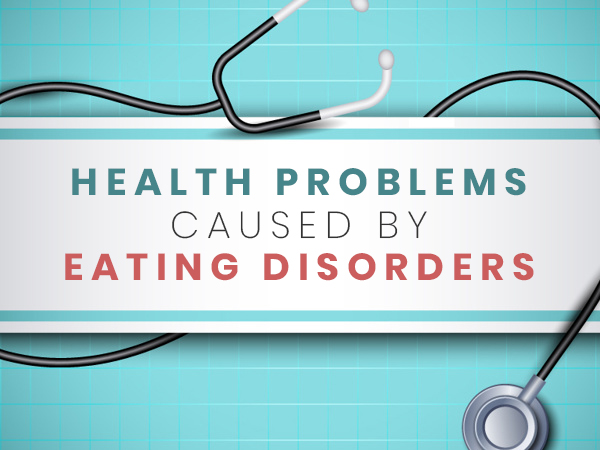Just In
- 3 hrs ago

- 8 hrs ago

- 13 hrs ago

- 18 hrs ago

Don't Miss
- Finance
 Trade Setup: Nifty Bounces Back From Friday Lows As Geopolitical Tensions Ease; Focus On Q4 Earnings
Trade Setup: Nifty Bounces Back From Friday Lows As Geopolitical Tensions Ease; Focus On Q4 Earnings - News
 Karnataka Lok Sabha Elections 2024: Priyanka Gandhi, Amit Shah To Woo Voters Of Bengaluru South Today
Karnataka Lok Sabha Elections 2024: Priyanka Gandhi, Amit Shah To Woo Voters Of Bengaluru South Today - Movies
 Aadujeevitham Box Office Collection Day 27 Prediction: Prithviraj's Movie Showing A Decline In Earnings
Aadujeevitham Box Office Collection Day 27 Prediction: Prithviraj's Movie Showing A Decline In Earnings - Technology
 OnePlus Watch 2 Review: A Near-Perfect Second Attempt! But Can it Take on the Galaxy Watch 6?
OnePlus Watch 2 Review: A Near-Perfect Second Attempt! But Can it Take on the Galaxy Watch 6? - Automobiles
 Volkswagen Virtus Marks Sales Increase In India, Becomes Top 5 Best-Selling Sedan
Volkswagen Virtus Marks Sales Increase In India, Becomes Top 5 Best-Selling Sedan - Sports
 CSK vs LGS IPL 2024 Match 39: Will Mayank Yadav Return To Lucknow Super Giants Line Up?
CSK vs LGS IPL 2024 Match 39: Will Mayank Yadav Return To Lucknow Super Giants Line Up? - Education
 Ratan Tata's Social Endeavors Recognized With KISS Humanitarian Award
Ratan Tata's Social Endeavors Recognized With KISS Humanitarian Award - Travel
Kurnool's Hidden Gems: A Guide To Exploring India's Lesser-Known Treasures
Health Issues Caused By Eating Disorders
Eating disorders are serious conditions that are characterized by irregular eating habits and severe distress about one's body weight or shape. It not only affects one's physical health but their mental health [1].

Eating disorders are complex mental health conditions that often require the help of psychological experts. Most eating disorders involve focusing too much on your weight and body shape, resulting in the development of dangerous eating behaviours [2].
The most common forms of eating disorders include anorexia nervosa, bulimia nervosa, and binge eating disorder. Eating disorders often develop in the teen and young adult years, although they can develop at other ages as well. One can develop an eating disorder with an obsession with body shape and food, which in severe cases can result in health consequences and even death if left untreated [3].

Health Issues Caused By Eating Disorders
While each type of eating disorder has its own set of associated symptoms, these have the potential to cause long-term damage to the mind and body [4].

1. Obesity
Obesity is the excess of body fat, which is usually caused by behavioural, genetic, metabolic and hormonal influences on body weight, with calorie intake being the primary reason. That is, eating more calories than you burn in daily activity and exercise leads to obesity [5].

Binge eating disorder is one of the primary causes of obesity, where people with this eating disorder can have an increased risk of medical complications linked to excess weight, such as heart disease, stroke, and type 2 diabetes as well [6][7].


2. Malnutrition
People with eating disorders such as anorexia nervosa, bulimia nervosa, rumination disorder and orthorexia are at the risk of malnutrition and severe weight loss [8]. This can also develop in people with eating disorders that cause one to overeat, which causes the indulgence of foods that are low on nutrition like chips, soda etc. [9]. With the lack of proper nutrition (calories, protein, carbohydrates, fat, vitamins or minerals) in the diet, one can become malnourished [10].

3. Depression
Studies point out that depression may lead to eating disorders, but there's also evidence that eating disorders can result in depression [11]. Being severely underweight and malnourished (anorexia) can cause physiological changes in a person. People with binge eating disorder are frequently overweight, causing them to be chronically depressed about the way they look [12]. While the treatment of depression can be effectively easy, finding an effective treatment for combined depression and eating disorders can be a challenge, according to experts [13].

4. Social Anxiety
Social anxiety is the fear of social situations that involve interaction with other people, which has been reported in people with eating disorders such as anorexia nervosa, bulimia nervosa, or binge-eating disorder [14]. Studies point out that about two-thirds of people with eating disorders also have an anxiety disorder, as one can develop anxiety about how one's self appears to others [15].

5. Obsessive-Compulsive Disorder (OCD)
People who have obsessive-compulsive disorder struggle with either obsessions or compulsions, or both [16]. Obsessions are recurrent and frequent thoughts or impulses, whereas compulsions are repetitive behaviours or mental acts that are done in response to an obsession [17]. People with eating disorders and people with OCD experience intrusive thoughts and compulsive actions and the obsessions are limited to thoughts related to food and/or weight.

6. Drug/Alcohol Abuse
One of the most commonly reported cases related to eating disorders is drug/alcohol abuse [18]. This is in response to the way the eating disorders affect an individual's mental health, causing them to resort to the use of drugs and alcohol as a means of escape [19].

Overcoming Eating Disorders
Eating disorders are very serious and should not be taken lightly as they can have a large effect on the growth and development of an individual. If you are suffering from an eating disorder or know anybody who is facing an eating disorder, the following tips can be helpful [20].
Support groups: An effective way to manage eating disorders is by joining a support group. There are many support groups which help people to confront their problems and help them deal with them by providing moral support.
Seek medical help: Medical attention is extremely necessary if abnormal eating habits cannot be handled. Eating disorders can cause serious health disorders, malfunctioning and irregular functioning of the body system. Medical help should be taken with immediate effect if the body is facing a lot of physical troubles.
Confront and share: If you have eating disorders because of mental stress, make it a point to share your troubles with someone. Sharing problems and confronting them can help you relax and give you the strength to change your eating habits. Sharing is a good way to overcome eating disorders.

On A Final Note…
If you notice a family member or friend who seems to show signs of an eating disorder, consider talking to that person with compassion and guide them to get the right kind of help to overcome the eating disorders.
Today, we will look at some of the most common health problems caused by eating disorders.
-
 pregnancy parentingWorld Mental Health Day: Warning Signs Of Eating Disorders In Children; How To Help?
pregnancy parentingWorld Mental Health Day: Warning Signs Of Eating Disorders In Children; How To Help? -
 healthRumination Syndrome: Know About This Rare Eating Disorder; Are You At Risk?
healthRumination Syndrome: Know About This Rare Eating Disorder; Are You At Risk? -
 kidsBinge Eating In Children: Signs To Look Out For
kidsBinge Eating In Children: Signs To Look Out For -
 diet fitnessIntermittent Fasting May Lead To Eating Disorders: Here's How
diet fitnessIntermittent Fasting May Lead To Eating Disorders: Here's How -
 disorders cureWhat Is Orthorexia Nervosa, An Obsession With Healthy Eating? Causes, Symptoms And Treatments
disorders cureWhat Is Orthorexia Nervosa, An Obsession With Healthy Eating? Causes, Symptoms And Treatments -
 disorders cureWhat Is Night Eating Syndrome? Causes, Symptoms, Diagnosis And Treatment
disorders cureWhat Is Night Eating Syndrome? Causes, Symptoms, Diagnosis And Treatment -
 disorders cureInternational No Diet Day 2020: What Are Eating Disorders?
disorders cureInternational No Diet Day 2020: What Are Eating Disorders? -
 wellnessBulimia: Causes, Symptoms, Diagnosis And Treatment Of The Eating Disorder
wellnessBulimia: Causes, Symptoms, Diagnosis And Treatment Of The Eating Disorder -
 healthBangalore Loves Its Bakery Cakes 'n Biscuits: But How Bad Is It? Experts Warn About Obesity!
healthBangalore Loves Its Bakery Cakes 'n Biscuits: But How Bad Is It? Experts Warn About Obesity! -
 healthThis Social Issue Could Be The Next ‘Epidemic,’ It Is Worse Than Smoking 15 Cigarettes A Day
healthThis Social Issue Could Be The Next ‘Epidemic,’ It Is Worse Than Smoking 15 Cigarettes A Day -
 pregnancy parentingObesity And Depression: 5 Ways You Can Support Your Kid
pregnancy parentingObesity And Depression: 5 Ways You Can Support Your Kid -
 healthHigh Risk! How Processed Foods are Imperiling Your Heart
healthHigh Risk! How Processed Foods are Imperiling Your Heart


 Click it and Unblock the Notifications
Click it and Unblock the Notifications




